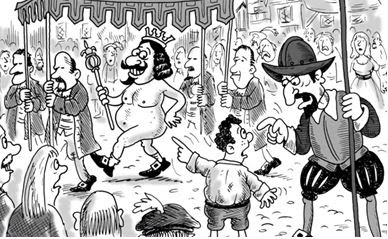IN THE CURRENT MIX of electoral alternatives, there is no longer a credible left-wing party. Not when “a credible left-wing party” is defined as: a class-oriented, mass-based, democratically-structured political organisation; dedicated to promoting ideas sharply critical of laissez-faire capitalism; and committed to advancing democratic, egalitarian and emancipatory ideals across the whole of society.
While some may argue that New Zealanders have not had a genuine left-wing party to vote for since the Labour Party abandoned its goal of “socialising the means of production, distribution and exchange” in 1951, it is more common to date the loss of a recognisably left-wing electoral alternative to Labour’s embrace of the “free market” in 1984.
Jim Anderton’s NewLabour Party and, later, his considerably less radical Alliance, attempted to make good that loss, and enjoyed some remarkable, if limited, successes. By 2002, however, the Alliance had broken apart, leaving only the Green Party of Aotearoa to carry forward the left-wing banner.
Problematically, the Greens, like their Values Party predecessor, are a post-scarcity political movement, driven less by class than by environmental and cultural concerns. As the party has come to embrace what is often abbreviated to “identity politics”, its earlier anti-capitalist impulses have been overwhelmed by the party’s increasingly strident discourses on ethnicity and gender.
The Greens move away from the system-challenging principles upon which the international Green movement was founded: Ecological Wisdom. Social Justice. Participatory Democracy. Nonviolence; is instructive. Displaying a disconcerting facility for Orwellian rewording, the Green Party of Aotearoa now lists its own core principles as: Ecological Wisdom. Social Responsibility. Appropriate Decision Making. Non-Violence.
The deletion of the words “justice”, “participatory” and “democracy”, amply confirms the Greens’ ideological trajectory: moving away from the emancipatory principles traditionally associated with the Left, and towards the uneasy marriage of technocratic “governance” and post-modern subjectivism so neatly personified in the party’s current co-leadership of James Shaw and Marama Davidson.
A very similar trajectory is discernible in the post-Rogernomics Labour Party. By embracing neo-liberalism, the party decisively abandoned its anti-capitalist ideology, rendering its use of the Left’s political vocabulary increasingly problematic. A semblance of radicalism and social transformation could, however, be maintained by moving deeper and deeper into the ideological territory of identity politics. In many respects, the alienating impact of this transition on its traditional followers was offset by the synergies it offered with Labour’s most “obvious” MMP coalition partner – the Greens.
Like Caesar Augustus’ Rome, today’s Labour Party presents to the world only the empty shell of its former self. Labour has held onto its revolutionary red. It continues to convene conferences at which (we are told) party policy is democratically debated and determined. And, just as the Emperor’s legions marched under standards emblazoned with the acronym of the defunct Roman Republic – SPQR [Senatus Populusque Romanus – the Senate and People of Rome] – Labour’s constitution still proudly references the “principles of democratic-socialism”.
It’s all a sham, of course. A carefully controlled exercise in deception. Once a political party embraces identity politics, traditional democratic mechanisms have a nasty habit of atrophying. Allowing conference delegates to determine the party’s direction in open plenary sessions would risk the wholesale repudiation of ethnic and gender discrimination as the prime movers of social injustice, and the re-elevation of class. Appointed policy committees are much less prone to cause such ontological difficulties.
Which is not to say that class plays no role in the contemporary Labour Party, merely that the class which now controls the party is the class responsible for managing the real-world social and inter-personal conflicts generated by class, ethnicity and gender. Labour has no more need for the trade union “sergeants” who managed the class warfare of yesteryear; the apparatchiks it needs today are the identity, diversity and equity commissars who manage the twenty-first century’s culture wars.
To gain a flavour of the post-democratic Labour/Green operational style, one has only to watch the video recording of the parliamentary select committee hearings into the legislation empowering citizens to change the gender assigned to them at birth, and recorded on their birth certificates, more-or-less at will.
Held during the Covid-19 Pandemic, the hearing took place on Zoom. Those speaking to submissions opposing the legislation were subjected to vicious cross-examination by Labour and Green committee members. The notion that citizens appearing before a parliamentary committee have a right to be heard respectfully clearly no longer applies to those who step outside the ideological boundaries of transgenderism. Clearly, in Labour’s and the Greens’ moral universe, TERFs have no rights.
When a shocked Nicola Willis rose in the House of Representatives to record her own, and the National Party’s, dismay at the treatment meted out to gender critical submitters by Labour and Green MPs, Labour’s Deborah Russell proudly owned-up to her behaviour and, to the applause of her colleagues, promised the same to all such ideological apostates appearing before her.
These are the drums that Labour marches to in the 2020s. They are the drums of the Professional-Managerial Class – and that class does not march to a democratic beat. Like the Greens, Professional-Managerial Labour is wedded to “appropriate” decision-making: that is to say – decisions made by itself.
But, if the ideological cadres currently controlling both Labour and the Greens are forcing “justice”, “participation” and “democracy” to make way for what is “appropriate” and “responsible”, where does that leave the people who, for most of their adult lives, have voted for left-wing parties, precisely to advance the causes of “justice”, “participation” and “democracy”? What is to be done when these concepts, like the institutions of the fallen Roman Republic, are emptied of their original purpose and replaced by the iron strictures of a new ideological imperium?
When asked by journalists why he was leaving the Labour Party, Jim Anderton’s reply was always: “I never left Labour, Labour left me.” But, did Anderton ever fully appreciate the crucial role he himself had played in allowing Labour to drift away from its working-class roots?
Because, it was Anderton’s determination – as President of the Labour Party between 1979 and 1984 – to select what he described as “first-class, highly-qualified, parliamentary candidates” that kick-started the separation. Engineers, university lecturers, lawyers, successful public servants: such were the people Anderton caused to be selected in preference to the unqualified working-class trade unionists of yesteryear. Paradoxically, it would be Anderton’s protégés who, by embracing “Rogernomics”, finally drove him to abandon Labour in 1989. The Professional-Managerial Class’s takeover of Labour would have been a lot harder, and taken much longer, had it not been for Jim Anderton’s determination to conduct it safely within the party’s walls!
Political scientists would shrug at this tale of class transition and ideological supersession. With some justification they would argue that the trend towards the professionalisation of political parties and trade unions was well underway by the turn of the nineteenth century. It was, after all, Vilfredo Pareto, (1848—1923), who characterised democracy as a political system for securing “the orderly circulation of elites”. That being the case, the best the voter can hope for is to choose the least evil collection of elitists.
Except, to acknowledge this as the only viable solution to the problem of political homogenisation requires the voter to deny even the possibility of securing social justice and social progress through collective action from below. And that proposition is flatly contradicted by the history of the last 250 years – a period which saw ordinary men and women aspire to and claim life improvements of unprecedented scope and scale. Indeed, it is difficult to avoid the conclusion that halting the forward march of this “social” democracy is exactly what the elites mobilised all their resources to achieve. Humanity’s present predicament is the result.
Breaking free of this predicament will require, above all other things, unity. But unity is achievable only if people are free to debate how, and upon what basis, it is best secured. That cannot happen where the principles of liberty, equality and solidarity are despised, or where the citizens’ freedom of expression is constrained. In other words, it cannot happen in political parties where ethnic and gender identity trumps the common heritage of humankind, and where saying as much is condemned as hate speech.
As happens in today’s Labour and Green parties.
This essay was originally posted on The Democracy Project website on Thursday, 28 September 2023.










